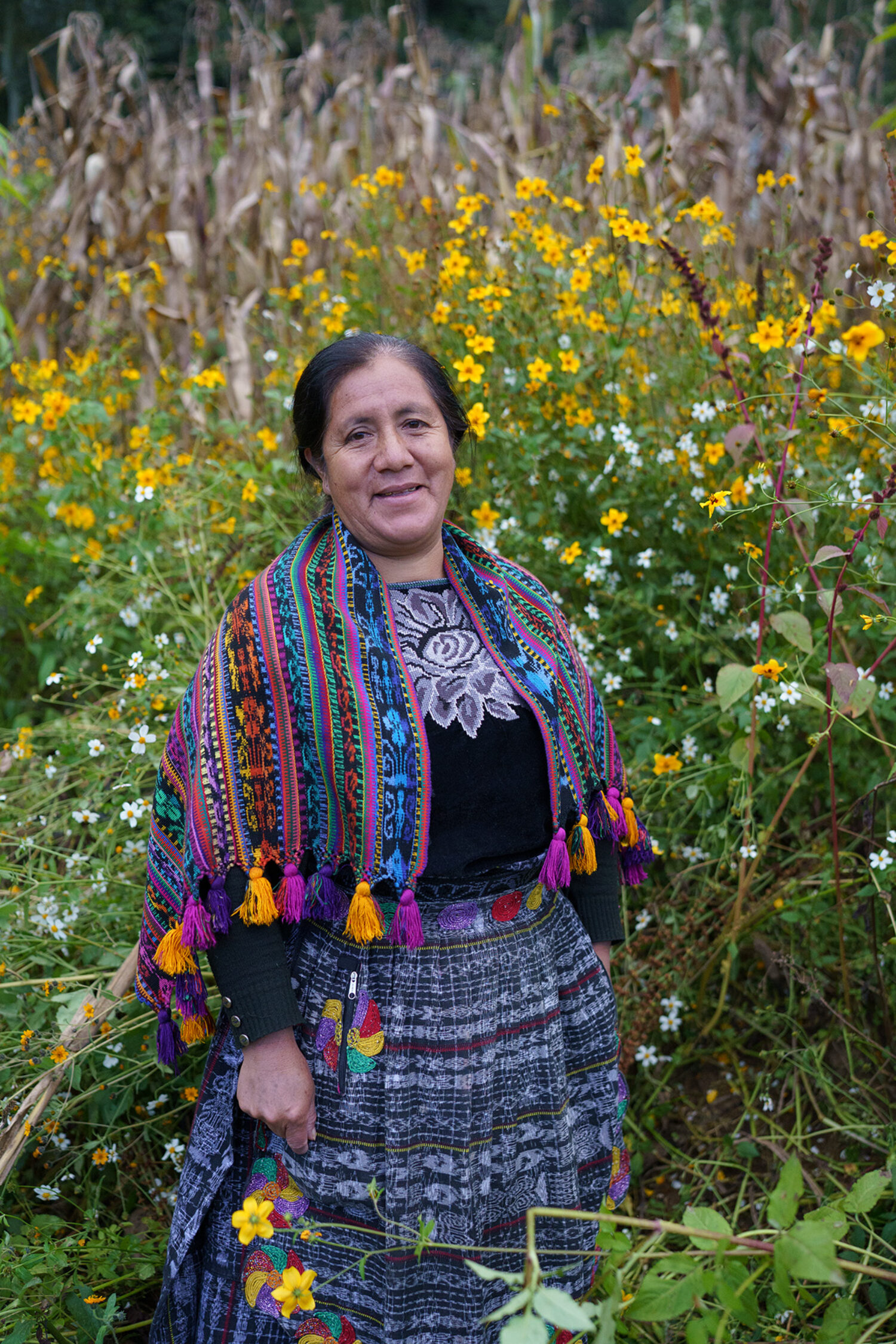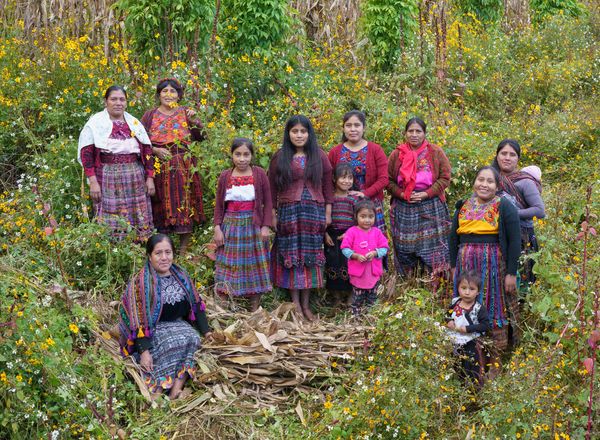
In the mountainous regions of western Guatemala, a community collective is bringing back Indigenous concepts of mental health. After years of civil war and the suppression of their voices, women are now finding empowerment through sharing circles.
Life in Los Romero, a village predominantly inhabited by the Indigenous Maya people known as the Mam, begins quietly before dawn. Isabel Romero, a grandmother with long black hair, used to feel trapped within the confines of her home. Like many Mam women, her days were filled with the difficult task of running a household with limited resources, and she rarely had the opportunity to connect with other women.
But things are changing for Romero and other Mam women in Los Romero. Through the establishment of women’s circles, their lives are being transformed. These community-based gatherings have given a voice to women who have been marginalized for centuries.
The idea for the circles emerged during French physician Anne Marie Chomat’s doctoral fieldwork in the region. After conducting interviews with Maya Mam women, Chomat noticed the transformative power of gathering and sharing experiences. This realization led to the creation of women’s circles, with the support of a grant, in 2013. Now, over 300 women from two municipalities participate in these circles, which take place every week or two.
The women gather in their traditional clothing, embroidered huipil blouses, and hand-loomed skirts. They come together to connect with nature, engage in breathing and movement exercises, and discuss the day’s name and energy according to the ancient Mayan calendars. The sharing circle is a space where women can speak from their hearts, expressing their worries, joys, and experiences. Sometimes, the circles include guided meditations, workshops to learn new skills, or communal meals. The sessions often end with a group embrace.
These circles have provided more than just a safe space for women to share their stories. They have fostered friendships, built trust, and had a profound impact on the mental wellbeing of participants. Research conducted by Chomat and other experts showed that participating in the circles improved women’s overall wellbeing and reduced symptoms of depression and anxiety.
For women like Romero, the circles have been life-changing. “I have seen in myself that I am a strong woman and that I can do things I used to be afraid to do,” she says. The circles have not only empowered women individually but also inspired some to take action within their communities. Elsa Cortez, a mid-20s member of Buena Semilla, is considering starting a circle specifically for girls to help build their self-worth and self-esteem.
The impact of these circles extends beyond individual empowerment. They address systemic issues such as domestic violence, providing support and guidance to women who may be experiencing abuse. Additionally, the circles revive Indigenous traditions and knowledge that have been suppressed throughout history.
In a country where mental health resources are scarce and Indigenous communities face discrimination and poverty, the women’s circles offer a glimmer of hope. They provide a model for community-based mental health support that can be replicated and adapted in other regions. As Marco Garavito, the director of the Guatemalan League of Mental Hygiene, states, “One of the preventative mechanisms for mental health is participation and social organization.”
The women’s circles of Buena Semilla are not just a solution for the struggles faced by Mam women in Los Romero; they are a testament to the power of communal support, connection, and the revival of Indigenous knowledge. Through these circles, the women of Guatemala are reclaiming their voices and transforming their lives.
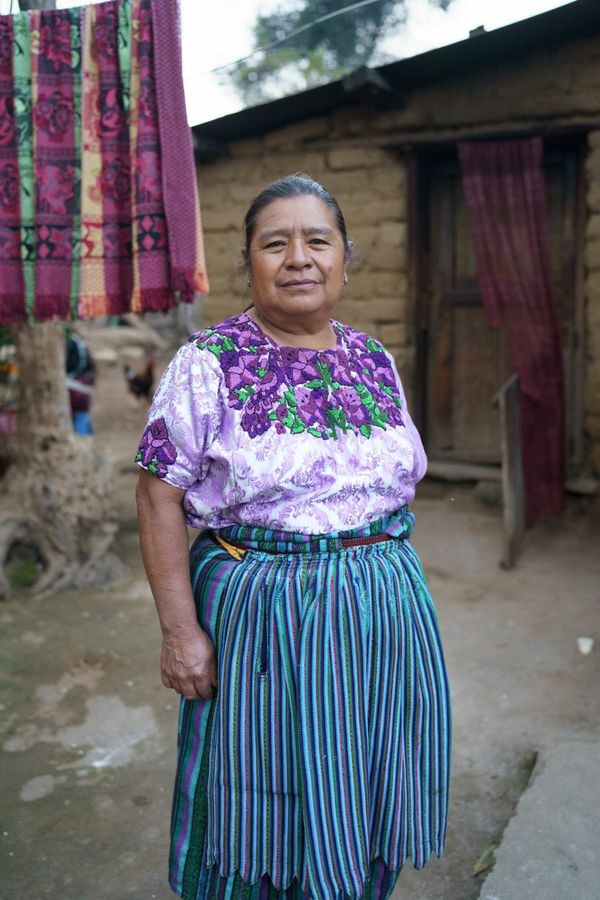
Isabel Romero outside her home in San Juan Ostuncalco. Image: James Rodríguez
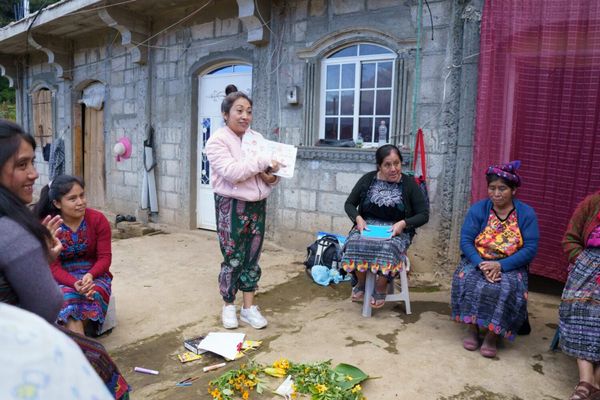
Project coordinator Sadi Garcia leads a discussion centered on the drawings. Image: James Rodríguez
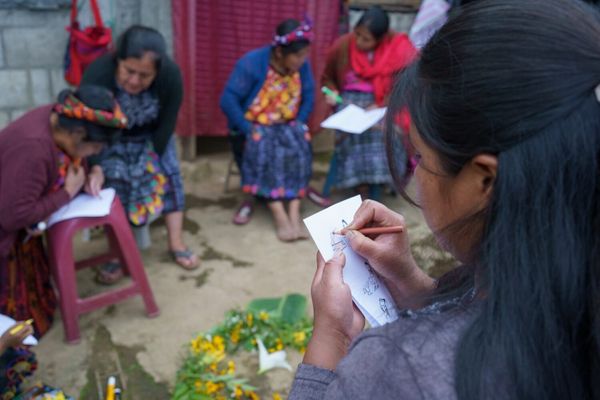
Women drawing their thoughts in a wellbeing exercise during a circle. Image: James Rodríguez
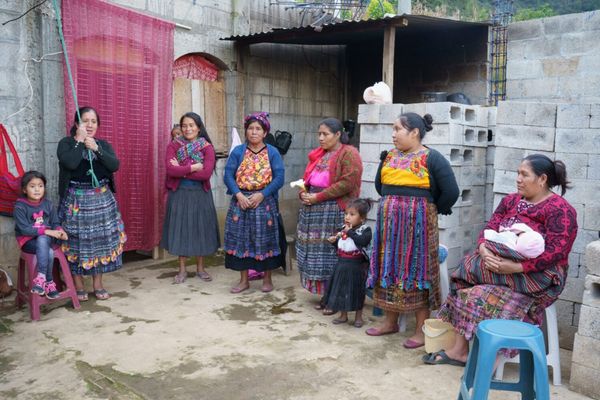
Miriam Méndez (first adult from left) opens a women’s circle in her village, Aldea La Victoria, San Juan Ostuncalco. Image: James Rodríguez
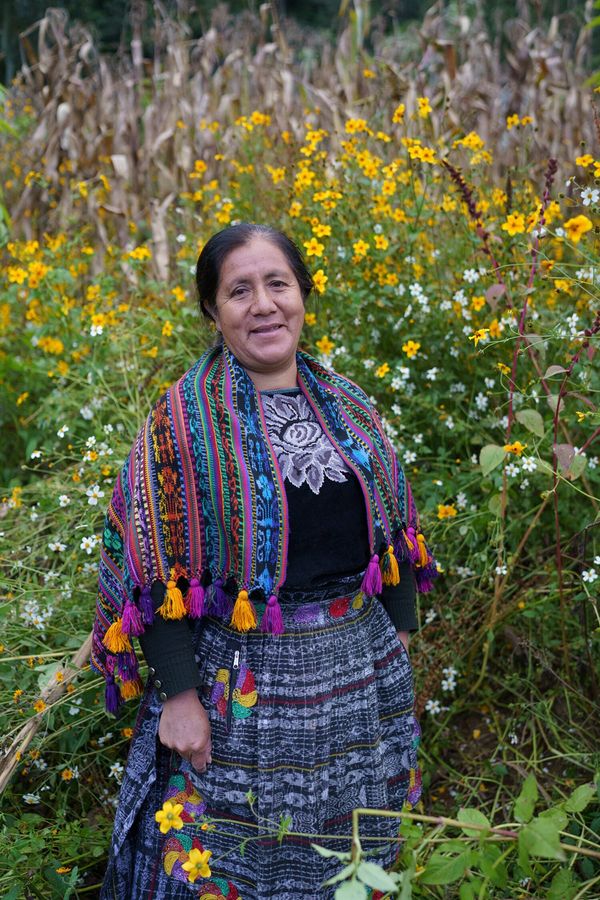
Miriam Mendez gathering flowers for the day’s circle. Image: James Rodríguez
